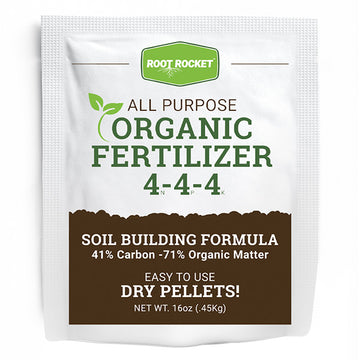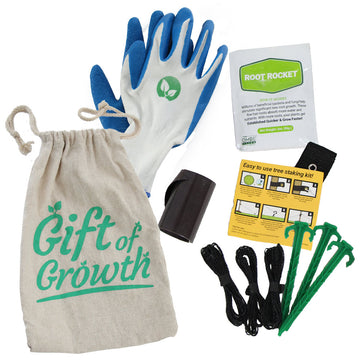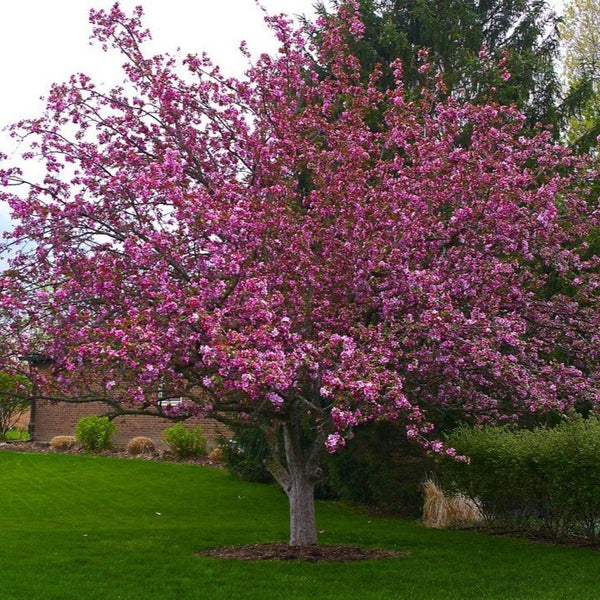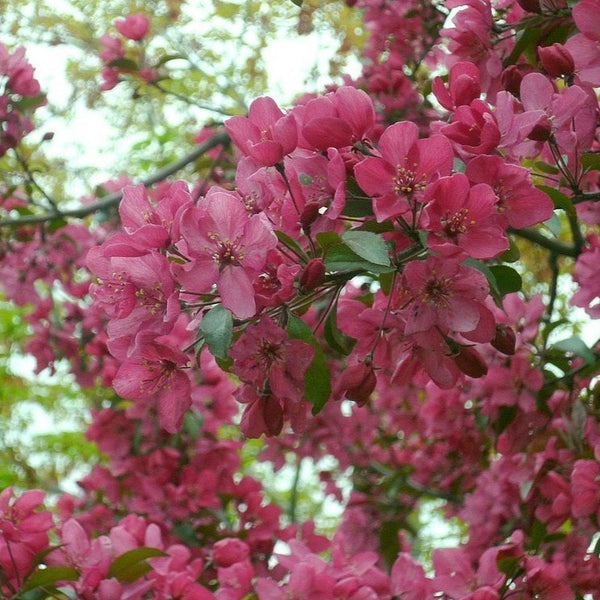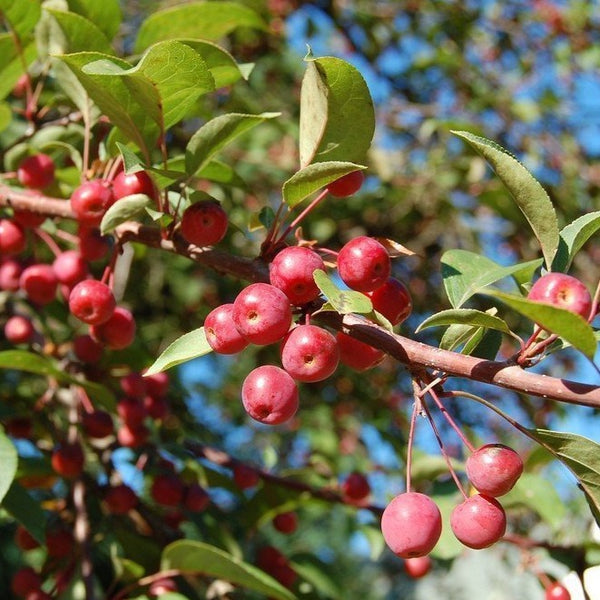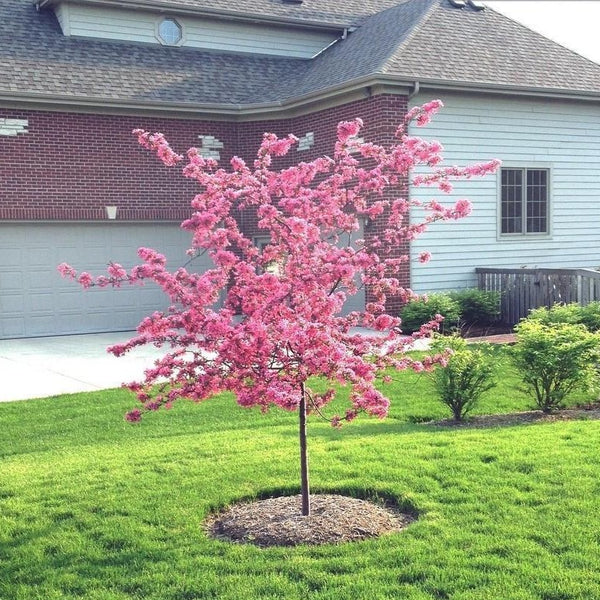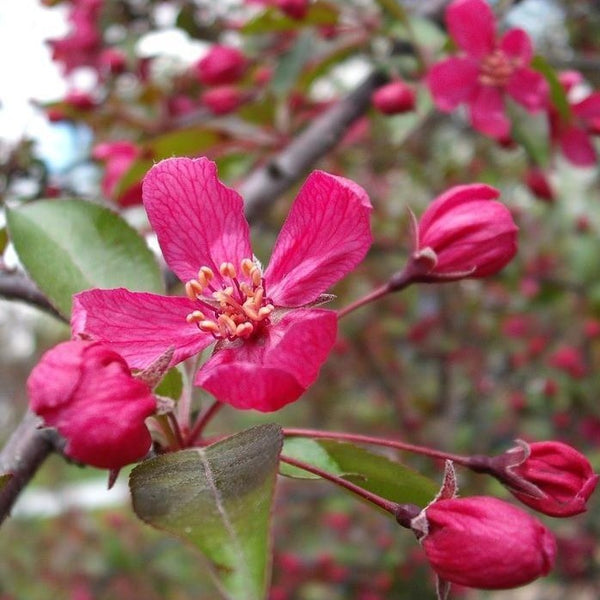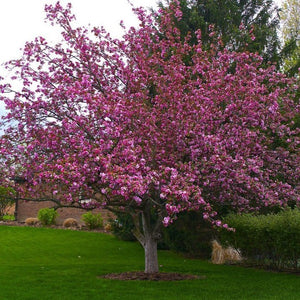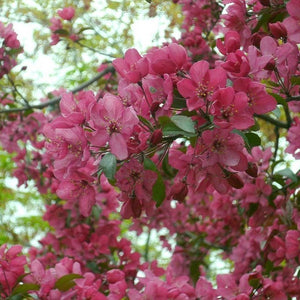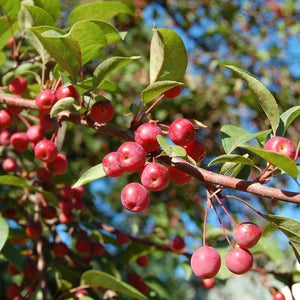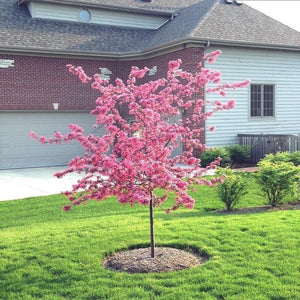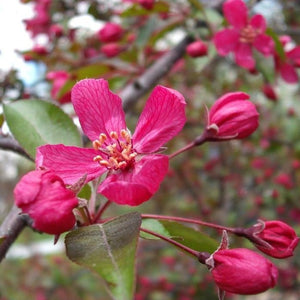Profusion Crabapple Tree
Product Details
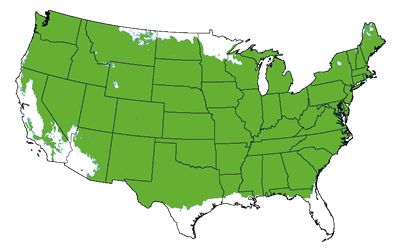 Growing Zones 4-8
Growing Zones 4-8
| Soil Type | Adaptable, Well Drained |
| Sunlight | Full |
| Drought Tolerance | Good |
| Mature Height | 15-20 Feet |
| Mature Width | 20-30 Feet |
| Fall Color | Orange |
| Bloom Color | Pink |
| Brand | Southern Living® |
| Shipping Restriction | AK, AZ, CA, HI, ID, OR, WA |
Looking for the perfect showpiece tree for your yard? How about shade, flowers AND color too? We love the Profusion Crabapple tree for these reasons and so much more! In spring a profusion of gorgeous, pink flowers blanket this beautifully shaped tree. As the flowers fade and fall you will love the shiny, green leaves than remain and bring this tree to life.
These lovely, oval, apple leaves turn a golden copper in fall. In early fall you will see miniature apples on your tree. These little pops of red can be left alone to admire or if you're more adventurous, pinterest type you can make crabapple jelly with them.
The Profusion Crabapple is a stunning tree with a mature height of 15 to 20 feet and a width of 15 to 25 feet, making it a perfect focal tree for almost any yard. The Profusion Crabapple thrives in full sun and just about any type of soil. It is also disease and pest resistant, low maintenance, and extremely hardy.
The Profusion Crabapple can even tolerate salt, pollution, and deer. Oh, and yet another bonus, the Profusion Crabapple pollinates several types of apple trees like Granny Smith, Braeburn, Jonathan, Honeycrisp, and Pink Lady to name a few! You will enjoy this easy and beautiful tree for years to come! Purchase a tree your family will love! Get your Profusion Crabapple today!
How Fast Does This Crabapple Tree Grow?
Expect the profusion to grow at a medium growth rate to a mature height of 20-25 feet.
How To Prune A Profusion Crabapple Tree
Prune this tree in late winter to remove any dead, dying, or crowded branches, or to maintain shape.
Are Crabapples Edible?
In early fall you can expect edible miniature apples on this tree that are perfect for making crabapple jelly.
When planting your Profusion be sure to choose the right location and conditions for your new tree to thrive. Spring and Fall are ideal times to plant. However, if you avoid freezing temperatures and extreme heat you can plant your Apple tree almost any time of the year. Crabapple trees thrive in full sun and well drained soil. Water deeply when planting and twice weekly for 1 to 3 months while your tree is establishing. For the first year, it's best to water deeply once weekly in spring and summer and once monthly in fall in winter after the establishment period. After the first year you will only need to water during dry spells. Adding a layer of 2 to 3 inches of mulch is recommended especially with newly planted trees. Do not allow the mulch to touch the trunk as this increases the chances of pests and disease. Fertilize in early spring and when planting to give your tree a boost. Choose a slow release fertilizer. When planting take care not to burn the roots by mixing the fertilizer into the soil before placing your tree in the hole. Prune your Crabapple in late winter to remove any dead, dying, or crowded branches, or to maintain shape. The best way to prevent disease and pests is by providing the appropriate care for your plants. Proper location choice, watering, and fertilization are the keys to your success. Scale, Aphids, and Mites are insects that can affect Crabapple trees. You can treat these pests naturally with horticultural oil, neem oil, or insecticidal soap. For severe infections you can use pesticides like carbaryl, also known as Sevin. Japanese Beetles are sometimes an issue for Apple trees. These can be treated with an organic powder called Bacillus thuringiensis (Bt). Luckily, the Profusion Crabapple is disease resistant and only rarely encounters problems with disease.

